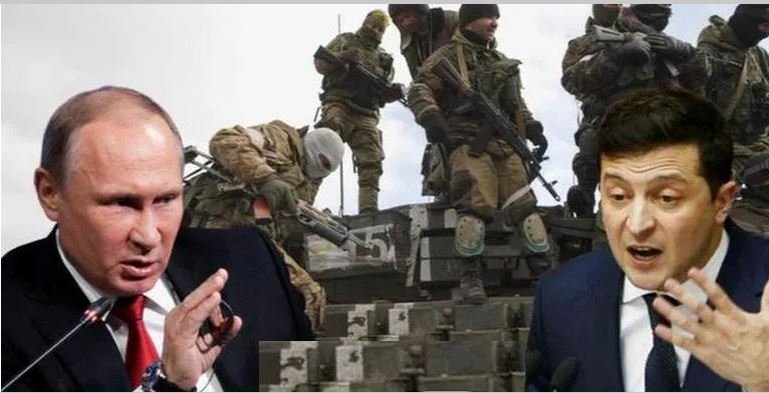
A missile strike on a train station in eastern Ukraine killed dozens on Friday, as civilians raced to evacuate, fearing a looming Russian offensive in the region.
Here are the latest developments in the war in Ukraine.
– 52 killed at train station –
At least 52 people are killed, including five children, in a rocket attack on a train station in the eastern Ukrainian city of Kramatorsk that is being used for civilian evacuations, according to Donetsk region governor Pavlo Kyrylenko.
Ukrainian President Volodymyr Zelensky describes Russia as an “evil with no limits” after the attack and calls for a “firm global response”.
Unites States President Joe Biden accuses Russia of being behind the attack, calling it a “horrific atrocity”, while French Foreign Minister Jean-Yves Le Drian deems it a “crime against humanity”.
Russia’s defence ministry accuses Kyiv of carrying out the attack, saying it wanted to use fleeing residents “as a ‘human shield’ to defend the positions of Ukraine’s Armed Forces”.
– EU chief warns of Russian ‘decay’ –
European Commission President Ursula von der Leyen says Russia will descend into “economic, financial and technological decay, while Ukraine is marching towards a European future”, speaking after meeting Zelensky in Kyiv.
She met him after visiting a mass grave in Bucha, a town north of the capital where Russian forces are accused by Ukraine’s allies of carrying out atrocities against civilians.
Austrian Chancellor Karl Nehammer also leaves for Kyiv, one of the first EU leaders to visit Ukraine after images of corpses in Bucha came to light.
– Odessa curfew –
Ukraine’s southern city of Odessa imposes a curfew from Saturday evening to Monday evening over a “missile strike threat” from Russia, and after the shelling of the train station in Kramatorsk.
– Eastern evacuation –
Civilians in eastern Ukraine are struggling to evacuate, after officials tell them they have a “last chance” to avoid a major Russian offensive expected in the Donbas region.
Russia has redeployed its troops towards the east and south, aiming to create a land link between occupied Crimea and the Moscow-backed separatist regions of Donetsk and Lugansk in Donbas.
– Ukraine controls border region –
Ukrainian forces are in control of the northeast region of Sumy along the border with Russia, governor Dmytro Zhyvytsky says on social media.
He warns: “The region is not safe. There are many areas that have been mined and are still not cleared.”
– Russia shutters rights groups –
Russia says it is shutting down the local offices of a number of international organisations including Human Rights Watch, Amnesty International and the Carnegie Endowment for International Peace.
The organisations have been taken off Russia’s registry of international organisations and foreign NGOs due to “violations of the current legislation of the Russian Federation”, the justice ministry says.
– Britain sanctions Putin’s daughters –
Britain announces sanctions on the daughters of Russian President Vladimir Putin and Foreign Minister Sergey Lavrov.
It also sends Ukraine more “high-grade military equipment” including Starstreak anti-aircraft missiles and 800 anti-tank missiles.
– Ruble bounces back despite sanctions –
After a historic collapse in the wake of Russia’s military offensive in Ukraine, the ruble stages a spectacular bounceback, supported by strict capital controls and energy exports.
But analysts say that success is in many ways artificial and does not bode well for the health of the Russian economy.
– US-South Africa call –
South African President Cyril Ramaphosa holds telephone talks with his US counterpart, a day after the continental powerhouse abstained from voting on a resolution suspending Russia from a UN rights body over its aggression in Ukraine.
“We shared views on the conflict in Ukraine and agreed on the need for a ceasefire and dialogue between Ukraine and Russia,” Ramaphosa wrote on Twitter.
– UN says 1,000 seafarers trapped –
Two UN agencies call for “urgent action” to help and protect around 1,000 sailors on trading ships stranded in Ukrainian ports and waters since the Russian invasion.
The heads of the International Labour Organization (ILO) and the International Maritime Organization (IMO) said that more than 100 trading ships cannot leave Ukrainian ports and waters.
AFP





